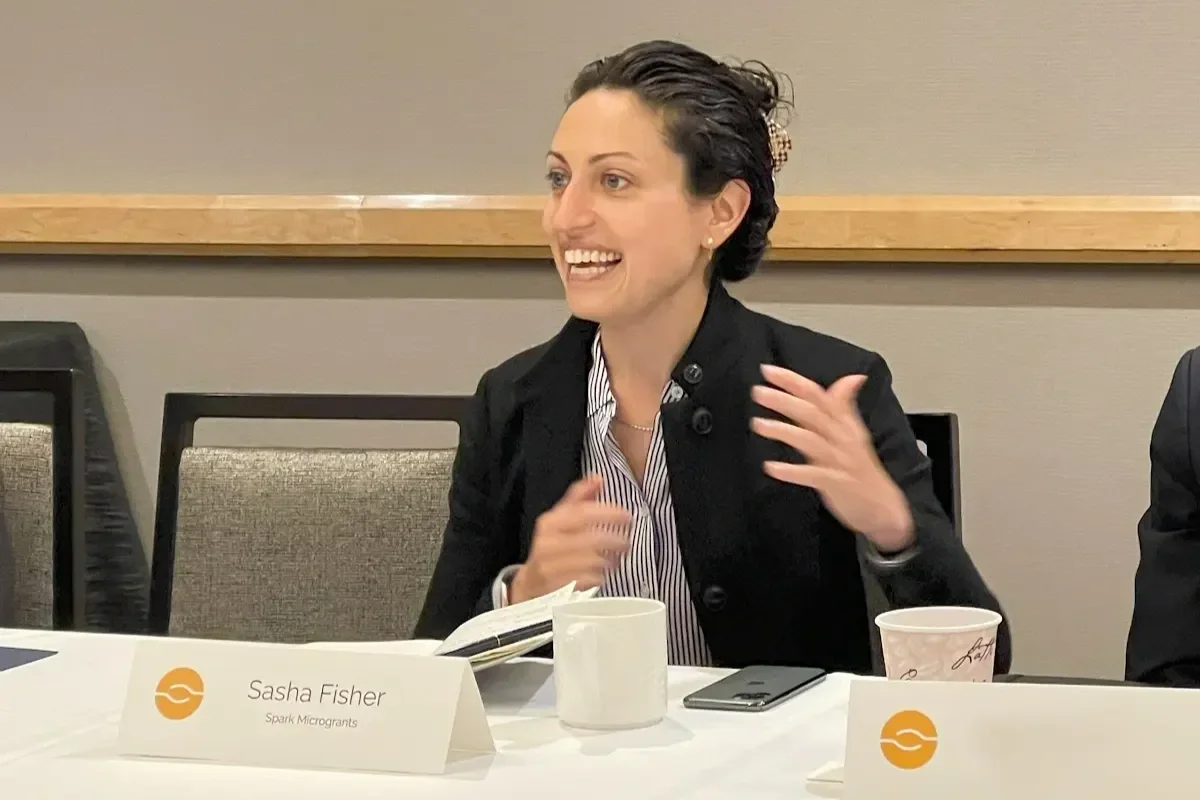The Future of Global Development: 2025 Skoll World Forum Roundtable
Amidst significant changes in global development financing from Western nations, Spark hosted a roundtable with sector leaders in Oxford, UK, to discuss how to shape the sector moving forward. The conversation highlighted new research results on the effectiveness of development and models that yield long-term versus short-term impacts. Participants also brainstormed on the principles they would like to see govern the sector to make it more effective and have a greater impact in the future. Key takeaways include the importance of strengthening government accountability to citizens, prioritizing initiatives that promote self-determination, and investing in cost-effective solutions that can scale up to reach hundreds of millions of people still facing extreme poverty.
Research shared at the beginning of the discussion showcased consistent findings on village grants and facilitation as a mechanism that leads to long-term impact, with 10+ years of sustained gains across regions, even in the most trying of settings such as Afghanistan through the Taliban take over, Rwanda despite a decade of poverty rates stagnating, and Indonesia, which is very large and logistically complicated. One piece of research can be found linked here from Afghanistan and here from West Africa. In comparison, impacts from traditional foreign aid models drop off after 2-3 years. With the reduction in Western aid and the resulting recalibration of power and accountability dynamics, the importance of focusing on approaches such as village grants and facilitation that enable homegrown solutions within areas of need and strengthen government-citizen accountability has never been greater.
Here are our key takeaways from the discussion:
Invest in high-ROI models: In a world with reduced development aid, the focus should be on smart investments that are cost-effective and generate long-term impacts, for the highest return on investment, rather than those that require recurring financing every few years to see recurring results.
The village grants and facilitation model enables local community solutions to emerge and persist. It is also cost-effective and leads to impacts that last for 10+ years. For example, while many projects struggle to maintain their momentum after outside NGO involvement, through village grants and facilitation, not only do initial projects persist, but for every project funded by a village grant, the village successfully initiates at least one additional independent project. These projects cover a wide range of areas, including health, climate, and economic development. Now more than ever, it is crucial to have a platform that enables communities to drive continuous progress in their own regions.
Strengthen government accountability to citizens: The decline of traditional bilateral aid presents an opportunity for governments to shift their focus away from reliance on foreign actors and refocus on accountability to their own citizens.
It is essential to support governments that are already under-resourced as they navigate significant financial cuts. Without necessary guidance and support, governments risk failing to fulfill their duty to provide services to their people, and citizens risk losing sight of the importance of advocating for their needs to their governments.
The current shifts in aid have diminished the capacity of traditional NGOs to operate on a large scale. This presents a pivotal opportunity to reevaluate how financial resources are distributed and ultimately foster a stronger relationship between residents and the state.
Midline results from an evaluation of Spark’s work in Rwanda show remarkable progress in improving government accountability and strengthening the citizen-to-state relationships.
Self-determination over dependency: As traditional bilateral aid becomes more scarce, prioritizing initiatives that promote self-determination and community action in low-capital regions is paramount.
Getting decision-making and funds directly to villages fosters local ownership, which is essential for sustainability. We know that the founders of a program will always care for it the most; that's why when community members are the founders of local development projects, they last for over a decade. When communities invest in their own community – be it infrastructure, livelihoods, or social capital – they pave the way for long-lasting impacts.
Thank you to all who joined the roundtable and contributed ideas, as well as to those who shared their thoughts during one-on-one meetings. As we are in a moment of significant change in the development sector, we see this as a critical time to put forward a vision for the future of global development and reboot development financing when possible, with principles that will ensure it is more effective than ever, and that we make significant strides in progress in the coming years rather than slowing down.

